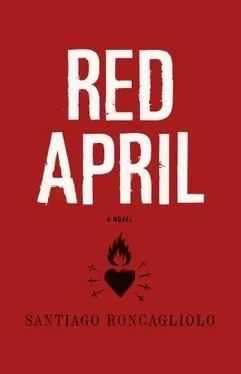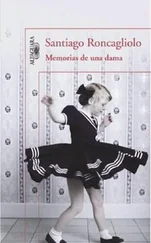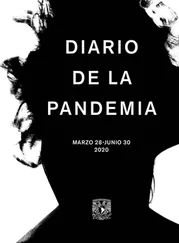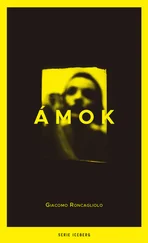Some diners came over to the priest to ask for his blessing. The priest stopped speaking to trace signs of the cross in the air, as if he were tossing them carelessly in every direction. The prosecutor tried to recapitulate what he had just heard. Some words seemed familiar, but taken together their meaning escaped him. Perhaps it was the subject of death that was absent from his thinking. How could he think about death or know what it was? He was not dead, at least he did not think he was. The priest continued:
“We live the experience of death in others but don't assume it in ourselves. We want to live forever. That is why we save bodies for resurrection. Burying them is saving them. Etymologically, ‘burial ground’ or ‘cemetery’ are not words that refer to death but to repose, the body's rest until it is rejoined with the soul. It's beautiful, isn't it?”
The prosecutor did understand those words but did not understand what was beautiful about them.
“Yes, very nice.”
Quiroz stopped for a second to bless one of the diners, a man without legs who came to him, pushing himself along with his fists. The priest gave him the blessing on his forehead, and the man returned to his table, satisfied. Quiroz continued speaking:
“Some pre-Columbian cultures buried their dead with all their implements so they could use them in the afterlife. Right here, thirty kilometers from what is now Ayacucho, the Wari even buried important people with their slaves. Except that the slaves were buried alive. They were a warrior culture.”
They were brought two glasses of warm milk with cinnamon, a nonalcoholic version of punch. The prosecutor did not want to ask if they had mate . As he felt the first swallow revivifying his body, the Associate District Prosecutor thought of the meaning of the word “Ayacucho”: “Place of the dead.” For a moment, he thought of his city as a great sepulcher of slaves buried alive. The grave that he himself had chosen and decorated with old mementos of his mother. He tried to change the subject:
“And the blood? Justino's body was found without any blood. Does that mean anything?”
The priest shrugged.
“If you start looking, everything has a transcendental meaning. Everything is an expression of the mysterious will of the Lord. The blood may have a more pagan significance. It could be the blood of sacrifice. In many religions, the sacrifice of animals is intended to offer to the dead the blood needed to maintain the life ascribed to them. Draining someone's blood is draining the body of life in order to offer all that life to a different soul.”
The prosecutor tried to take a drink of milk before answering, but the speckle of cinnamon looked like a bloodstain to him. Without knowing why, he remembered the words: “Ye shall eat the blood of no manner of flesh; for the life of all flesh is the blood thereof: whosoever eateth it shall be cut off.” He said them aloud. The priest specified:
“Leviticus 17:10–14. I see you keep up with your Bible reading.”
“I don't know where I heard it. I suppose I remember it from some Mass I went to when I was a boy. I used to go with my mother. And the seven daggers in the chest of the Virgin of Sorrows? What do they represent?”
“Seven silver daggers for the seven sorrows that the passion of Christ produces in his mother. Are you investigating a case, Señor Prosecutor, or do you want to take first communion?”
“It is just that the two deaths seem to have something to do with Holy Week: Ash Wednesday, Friday of Sorrows … it is … too much of a coincidence, isn't it?”
“No. The celebrations are superimposed. Carnival is originally a pagan celebration, the harvest festival. And during Holy Week there are also echoes of the Andean culture that preceded the Spaniards. That's because it doesn't have a fixed date, like Christmas, but depends on the seasons. As I told you last time, the Indians are unfathomable. On the outside, they follow the rituals that religion demands of them. On the inside, only God knows what they are thinking.”
The prosecutor observed all the beggars who had gathered on the benches of the eating hall, presided over by an image of the bleeding Christ wearing the crown of thorns. Another beggar approached to ask for a blessing, which the priest gave. The prosecutor remarked:
“They seem very devout to me, Father Quiroz.”
“I honestly don't believe that all the campesinos who come to Ayacucho for Holy Week know exactly what the meaning is of what they are doing. Even though this is the Holy Week with the longest tradition in the world. Did you know that? This and the one in Sevilla. Ayacucho keeps the memory of the older Christianity. Friday of Sorrows, for example, is no longer celebrated in most of the world.”
The prosecutor wondered in which province of Peru Sevilla might be. He promised himself to check it on a national political map when he had time. He continued to ask questions:
“Then what significance do the campesinos attribute to Holy Week?”
“I suppose it simply forms part of their cycle. It is the myth of eternal return. Things happen once and then they happen again. Time is cyclical. The earth dies after the harvest and then it is reborn for sowing. Except they disguise the goddess Pachamama with the face of Christ.”
The prosecutor was missing a fact. He overcame his embarrassment to ask:
“And what significance do we attribute to it?”
The priest seemed annoyed. He stared into the prosecutor's eyes reprovingly, as he would with a poor student.
“You were doing so well with your biblical quotations …” But then he smiled at the corners of his mouth. “Death, Señor Prosecutor. We celebrate the death of Christ and we represent it in order to die with him.”
“Oh, I understand that, but … I mean … Why do we celebrate death? Isn't that a little strange?”
“We celebrate it because we don't really believe in it, because we consider it the transition to eternal life, a life more real. If we don't die, we cannot be resurrected.”
That same afternoon, Chacaltana tried to explain to Carrión the little he had understood of his conversation with the priest. But the commander listened to his words with a disappointed grimace.
“Catholic terrorists, Chacaltana? But they're a bunch of damn communists!”
Papers had accumulated in the office, among them the prosecutor's reports, and dishes with the remains of food. The prosecutor guessed that the commander was not taking steps or making visits personally, that he asked for reports on everything, that he did not move from his office even to sleep at home. But he listened to the prosecutor. In fact, Chacaltana had gone through the entrance and the central courtyard of the headquarters building, up to the second floor, with no checkpoints or questions. Captain Pacheco was in the anteroom to the commander's office. The secretary was telling the police officer that Carrión was at a very important meeting but had let the prosecutor go in without a word. Pacheco had looked at him with hatred. The prosecutor knew he would have problems with him. But for now, his problem was how to convince the commander of what he was saying when he himself was not very convinced.
“The two killings are filled with religious references, Señor. They are something like … celebrations of death.”
“Have you been seeing too many movies, Chacaltana?”
Chacaltana thought about the television set in Edith's restaurant. No. He had not been seeing too many movies.
“It is … what I have found out … Señor.”
Prosecutor Chacaltana felt foolish, slow-witted, like a poor investigator. He thought he would have preferred never to have moved up, to have continued his devotion to his poems and memoranda. He did not like being important, and he specifically did not like being important in this case. If he were just a nobody, at this moment he would be with Edith, thinking about other things. About things that concerned him. About his life and not a pile of dead people. The commander turned and looked at him with suspicion.
Читать дальше












